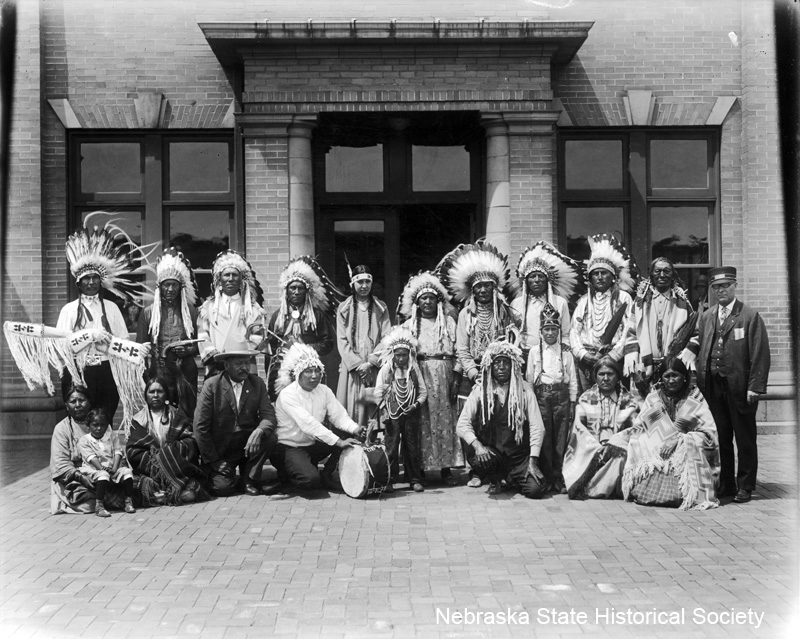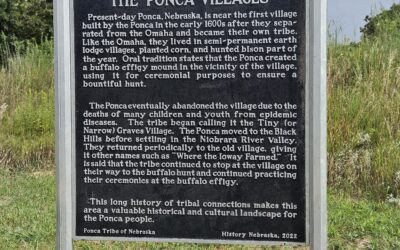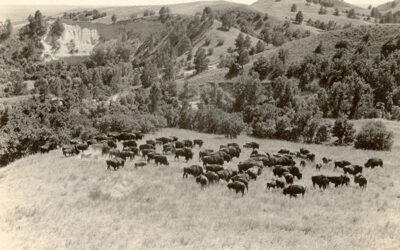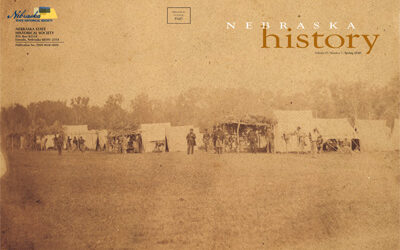A labor shortage during World War I left western Nebraska potato farmers facing the loss of their crop. They brought in Lakota (Sioux) Indians as harvesters, beginning a tradition that lasted from 1917 through the 1950s. The story is one both of prejudice and understanding, cooperation and conflict—and of long-lasting relationships forged by economic necessity. Read the full article here.

Dressed for a post-harvest dance, Lakota pose at the Burlington depot in Alliance in the 1930s.



